The biggest environmental disaster in the world
Uzbekistan has more to offer than ancient mud-built houses, mosques, mausoleums, minarets and medrassas covered with the typical blue mosaics. There is more to do besides strolling on the bazaars and buying (or just looking at) silk carpets, fur hats, hand-painted ceramics, carved wooden boxes and puppets, scarves, woodcarvings and suzani (silk or cotton cloths with intricate hand-stitched patterns).
There is something else, something that would make the heart of any disaster tourist beat a little faster. In fact, it’s probably one of the world’s biggest environmental disasters in modern history. The disappearance of the Aral Sea.
Imagine an inland sea so large it would be able to support a healthy fishing industry with a fleet of more than 500 vessels, bringing in 25 million kilograms of fish every year. It was the 4th largest lake in the world, over 400km long with a surface area of more than 66000 km2 and an average depth of 16m.
Now fast-forward 50 years to 2013 and this lake is gone. Vanished, disappeared, dried up, evaporated, sucked dry. It’s remaining fishing boats resting and rusting on a bed of sand where once waves lapped the little beach, complete with little beach huts at the bottom of small, sandy cliffs.
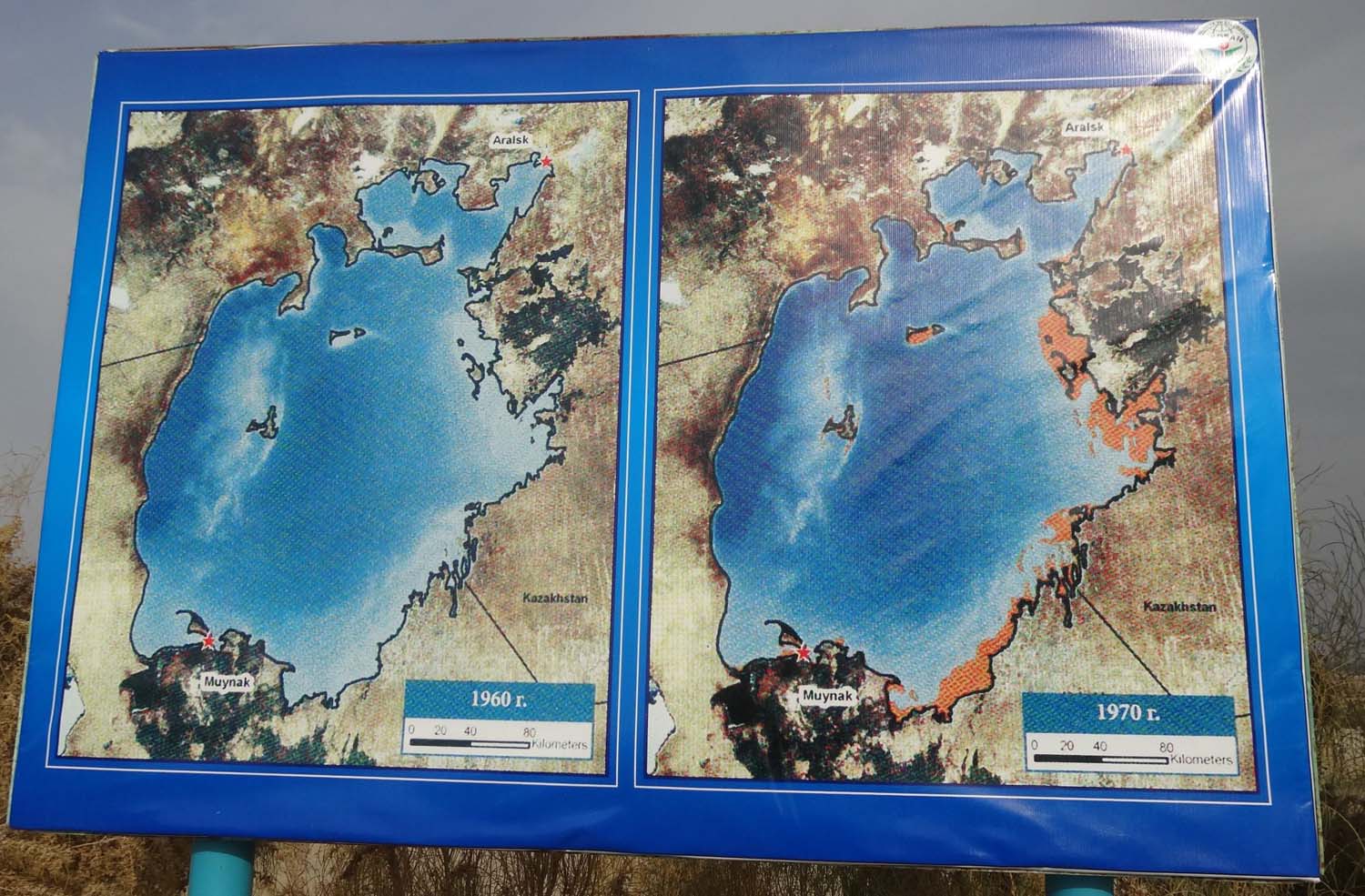
in 1960 the Aral Sea was still completely full, you can already see the start of the disappearance by 1970
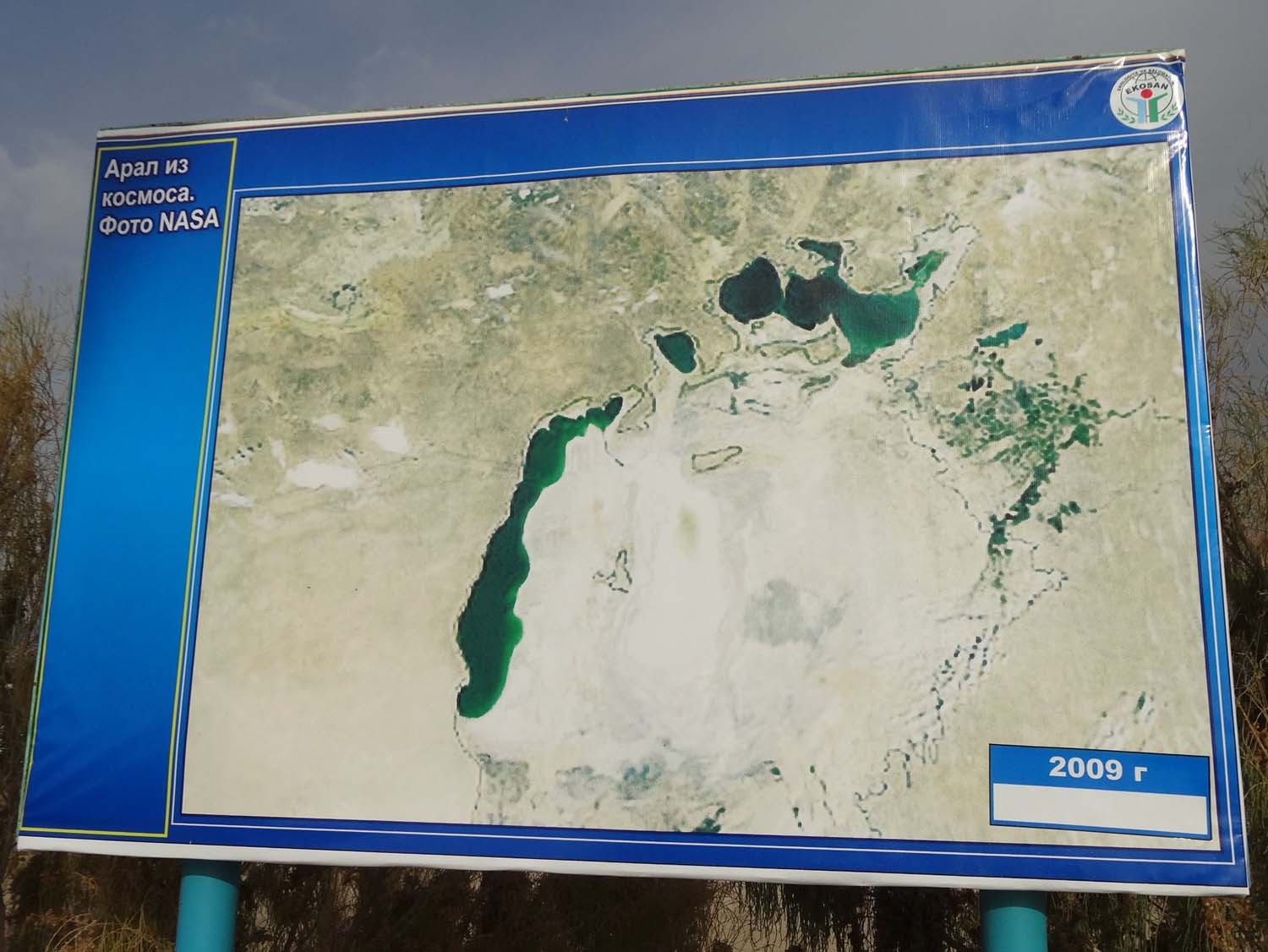
this was 2009, Kazakhstan is actively trying to re-establish the North Aral Sea again. The South Aral Sea seems lost forever
The small town of Moynaq in the northwest of Uzbekistan transformed into a ghost town where people suffer from the toxic sand and dust storms that now plague the area after its dramatic change in climate. Instead of 30-35 days without rain, the area now has 130-140 days without a drop coming out of the sky every year. They now have a desert at the edge of town instead of a little harbor on the edge of an inland sea.
How could all this happen, is this the dreaded result of global warming? Nope. This is the obvious result of human greed (and stupidity). Many years ago Uzbekistan grew some cotton. Maybe not the best crop for a country which is essentially a desert (as cotton needs a lot of water to grow), but as this cotton grew on fertile soil it worked. Then the good ol’ USSR wanted to increase the cotton harvest. One of the biggest rivers of Central Asia flows into this desert country, we can use that to irrigate the new fields, right? (Similarities with the Murray River may be painfully obvious for those living in Australia.)
This, of course, was utterly unsustainable. But still, to this day, Uzbekistan produces cotton. Lots and lots of cotton. In fact it remains one of the largest exporters of cotton in the world. And the only reason Uzbekistan can still maintain this inefficient mono-culture is slave labour. Every autumn people are summoned to work in the fields, picking the cotton by hand until their area’s quota has been reached. The workforce includes office workers, housewives, students and kids, although an agreement was reached some years ago that forbids any child under 16 to pick cotton…
The Amu-Darya, flowing from the mountains in Tajikistan, now peters out somewhere in the desert without reaching the once beautiful Aral Sea. And a monument stands tall on top of the cliffs, overlooking the Aral Desert instead of the Aral Sea with the rusting ships at its base in the sand. It gives ‘ships of the desert’ a rather eerie meaning.
We drove up to Monyaq as we had managed to buy some diesel on the black market. Even with our 2 vegetable oil drums filled with diesel from Tajikistan, we wouldn’t have made it without buying some more in Uzbekistan. But, especially during cotton harvest time when we were there, it is not easy to find petrol or diesel in this country. Proof was in the many queues at petrol stations that had some supply. There were also long queues at petrol stations where the gates were shut, no doubt drivers hoping for a re-supply soon. Other petrol stations were simply deserted, sometimes with a few cars that had obviously run empty patiently waiting inside. We paid black-market prices for our diesel which came from a collection of jerry cans stashed at the back of a workshop. The vendor was obviously pleased with the price as he invited us home for tea…
We felt a bit awkward driving into Moynaq, as we had obviously come for one reason only. To have a look at their misery, at their environmental disaster that had happened in the last half century. Whilst it felt wrong, we really wanted to see this first-hand. A stark demonstration of what we are doing to this wonderful planet that provides us with everything we need to live, including one of its most precious resources: water. What was especially saddening to learn was that the warning signs had been ignored – the scientists had accurately predictive models that predicted these results. All this could have been prevented!
We camped on the Aral Sea bed that night, surrounded by sand and desert life instead of needing a snorkel to breath. And when digging our holes for our toilet needs, we were digging in the shells of the sea, now left as a reminder of what once was.
Let’s hope we learn a lesson from this disaster, that we can see the urgency with which (for example) the problems surrounding the Murray River in Australia need to be dealt with. Let’s learn from history and our mistakes. Let’s wake up our politicians who allow these things to happen, who don’t want to wake up to reality and who refuse to take the right steps.
Let’s prevent things like this happening again. Ever.
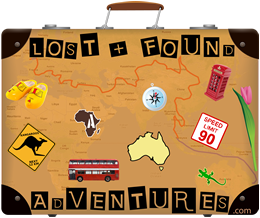
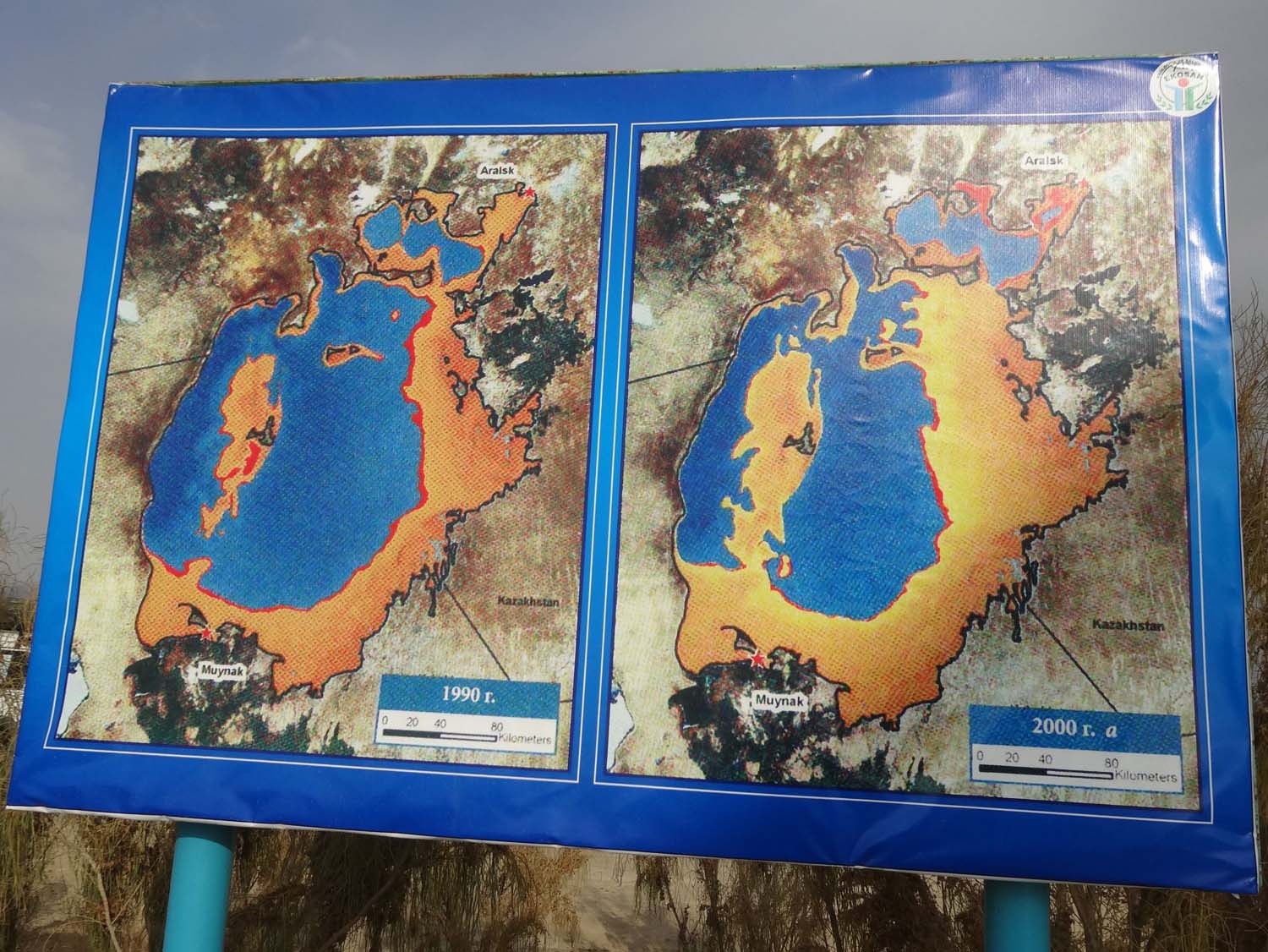
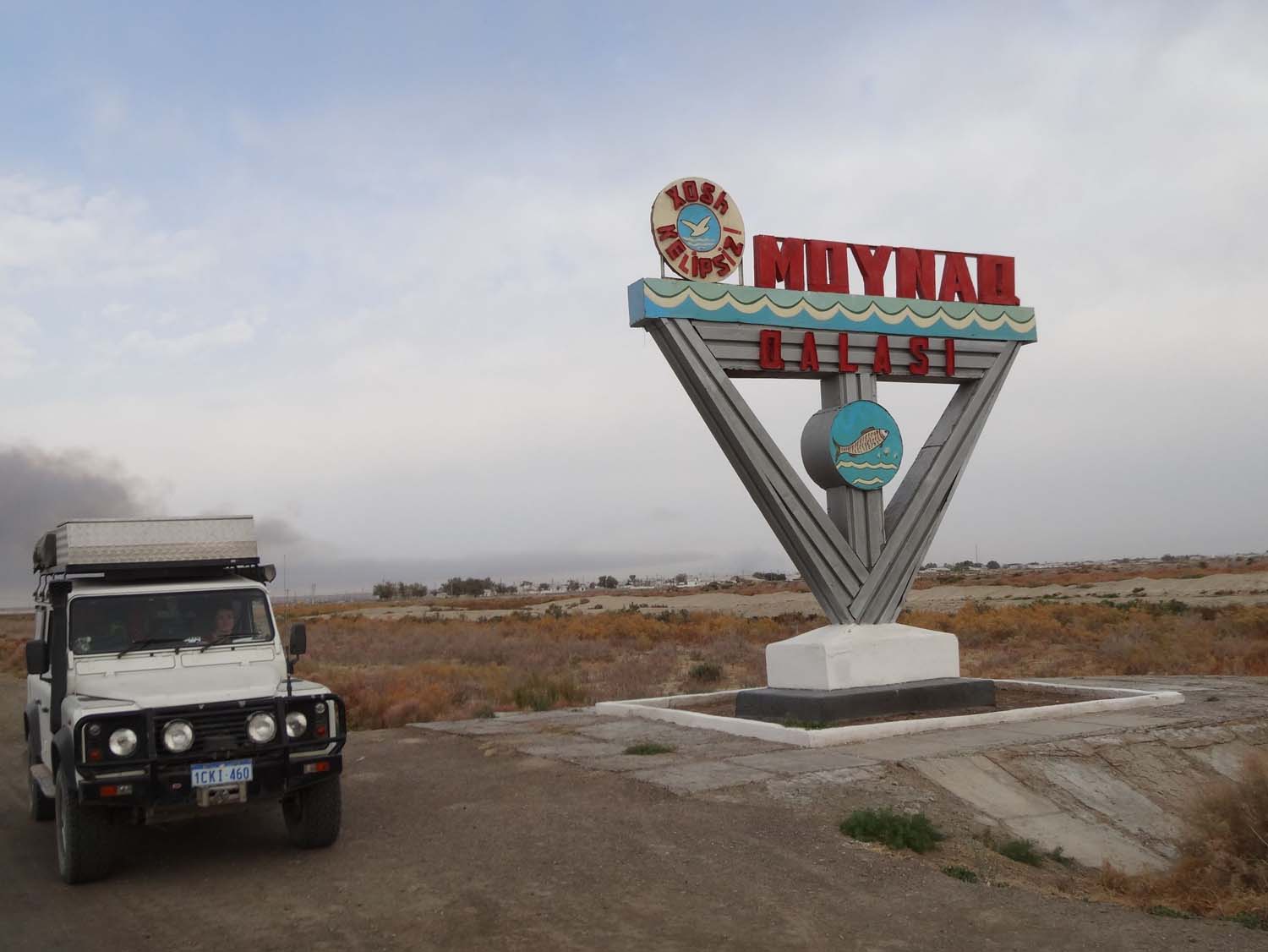
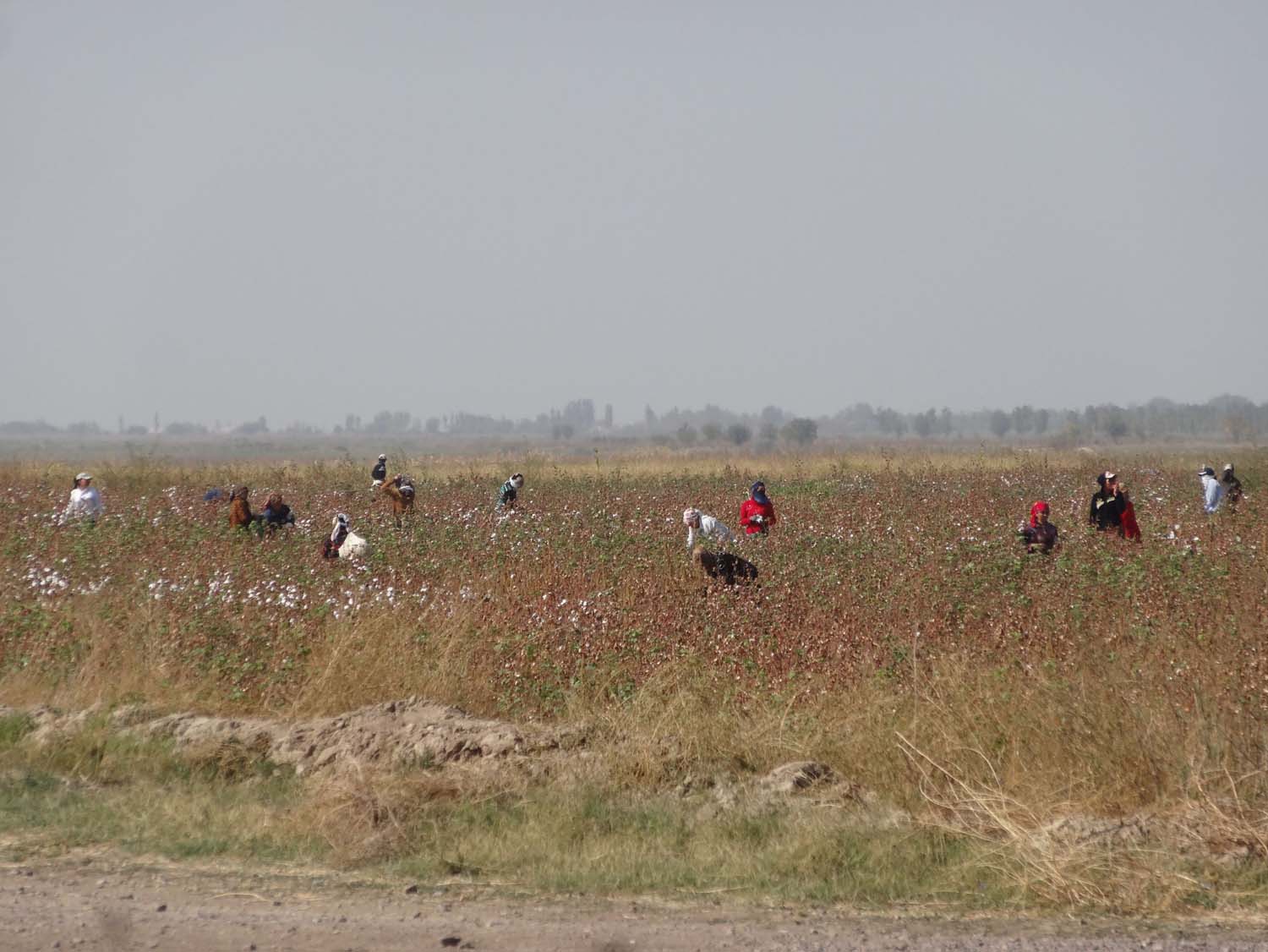
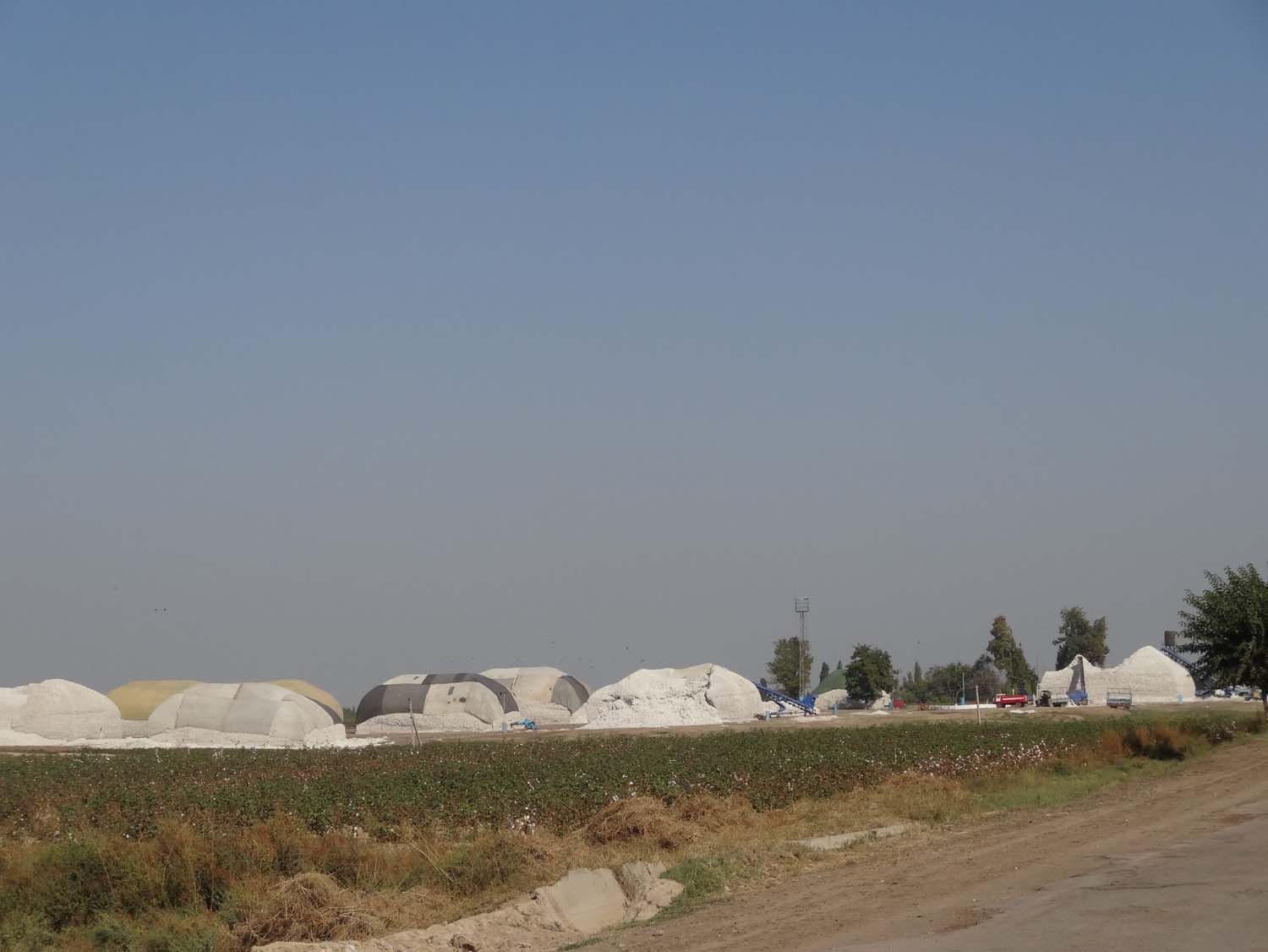
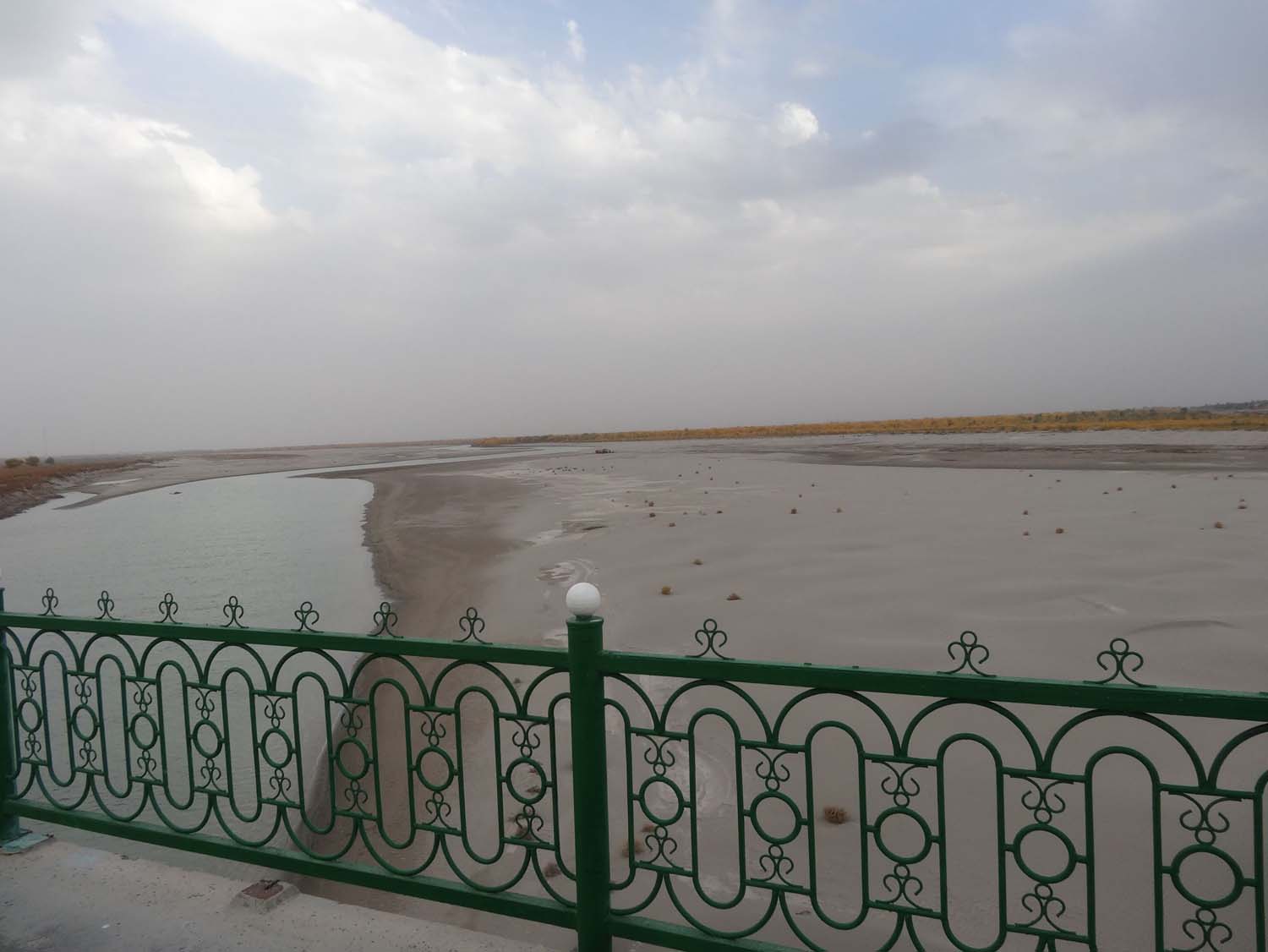
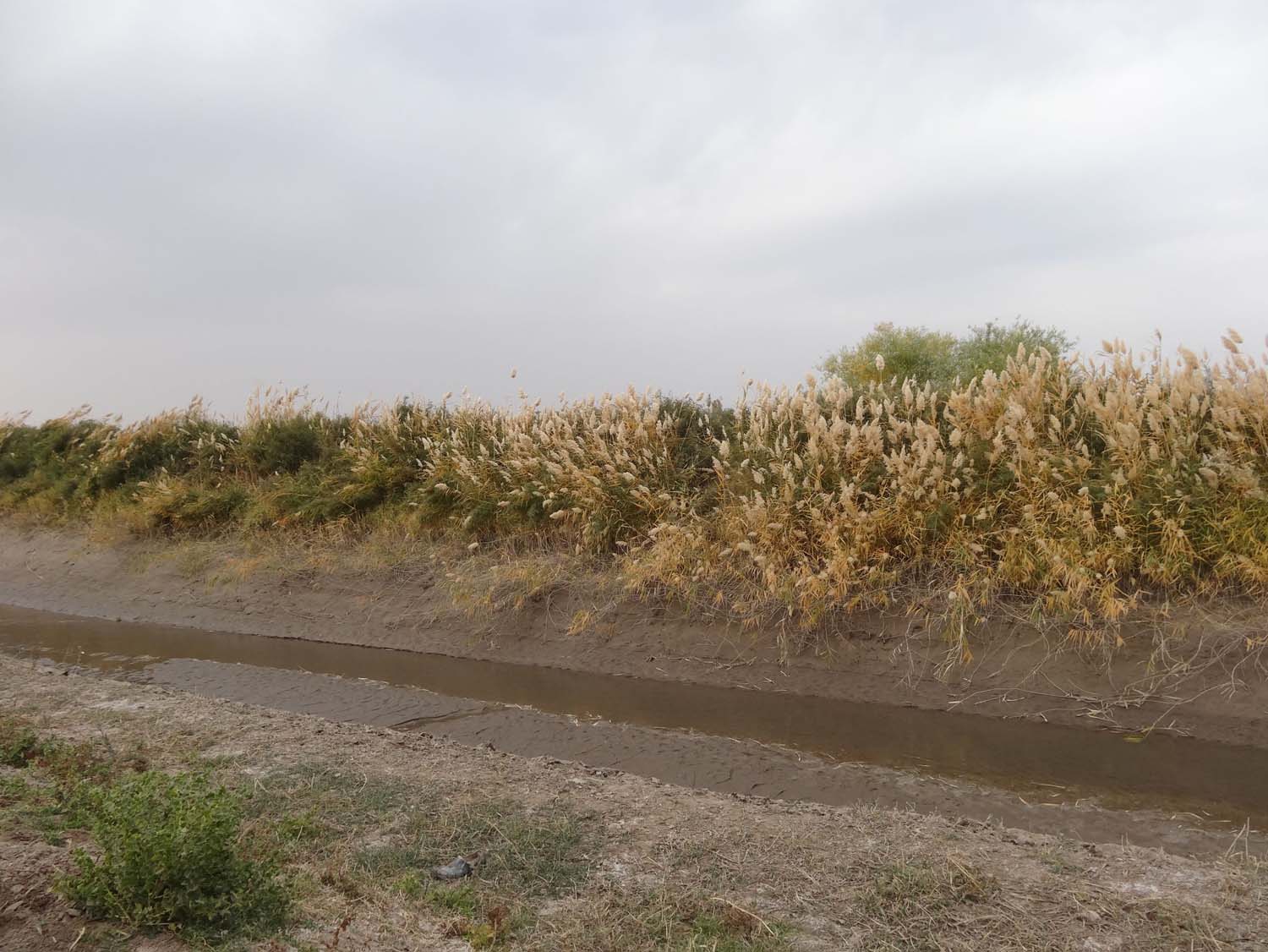
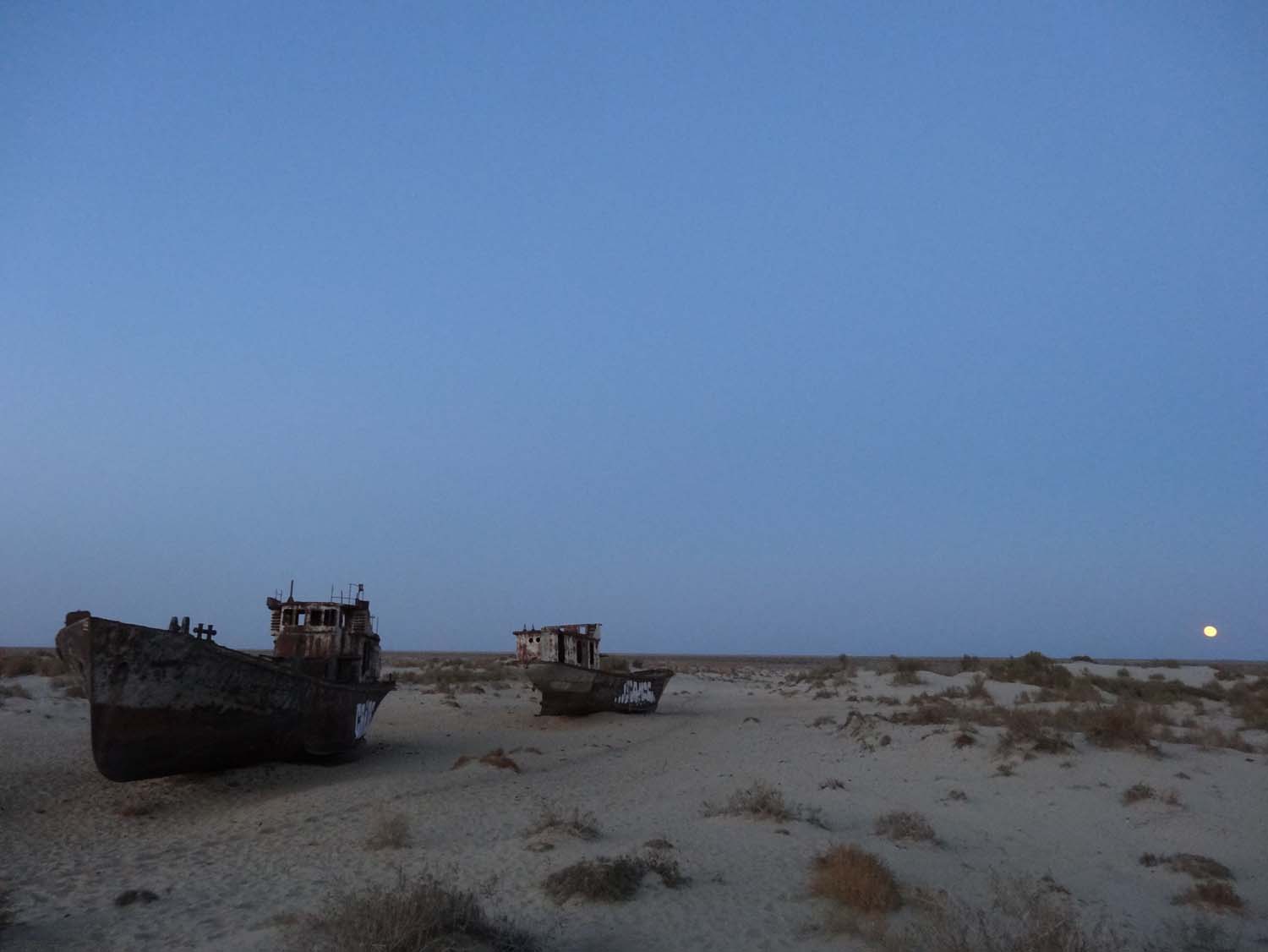
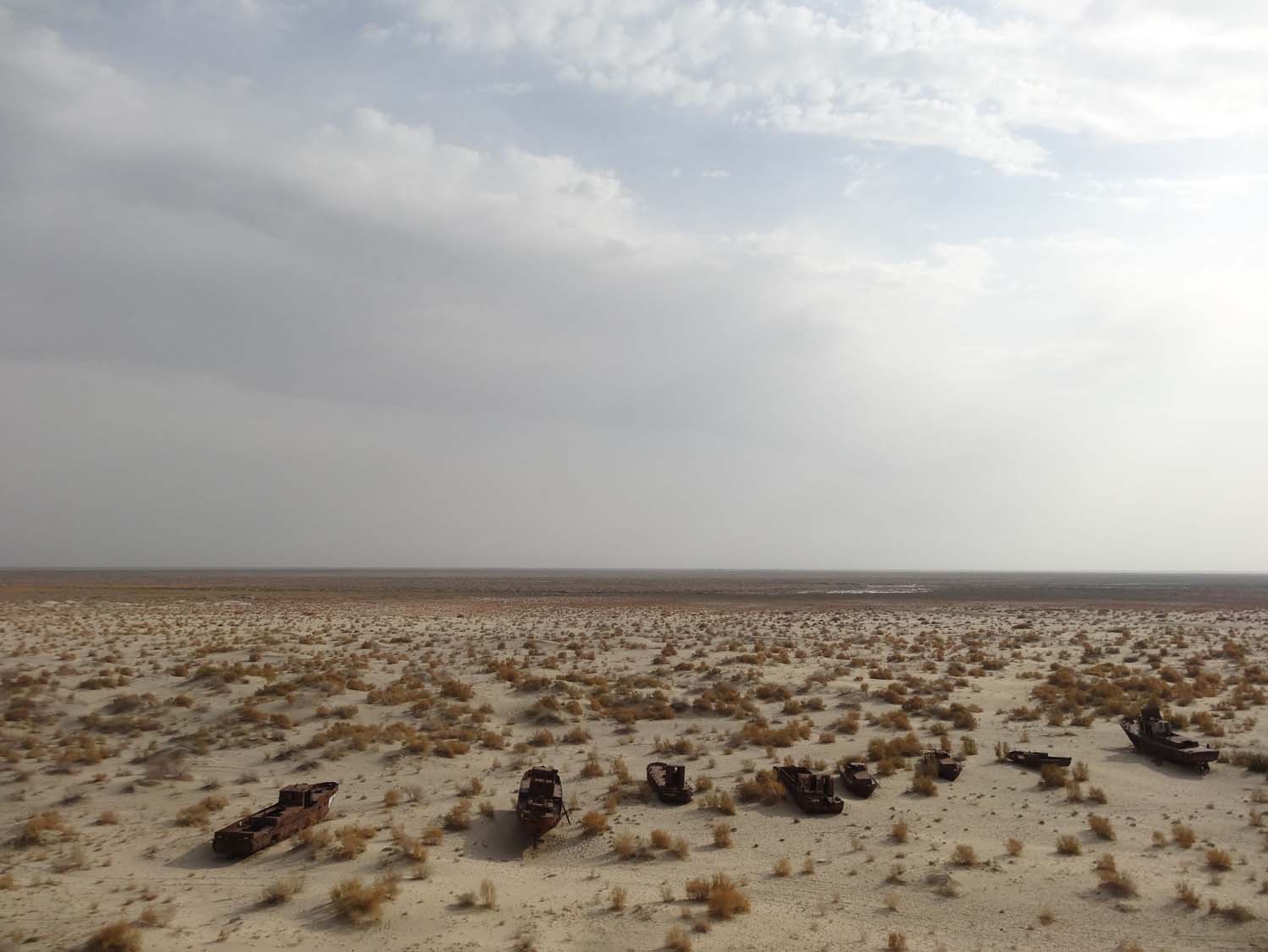
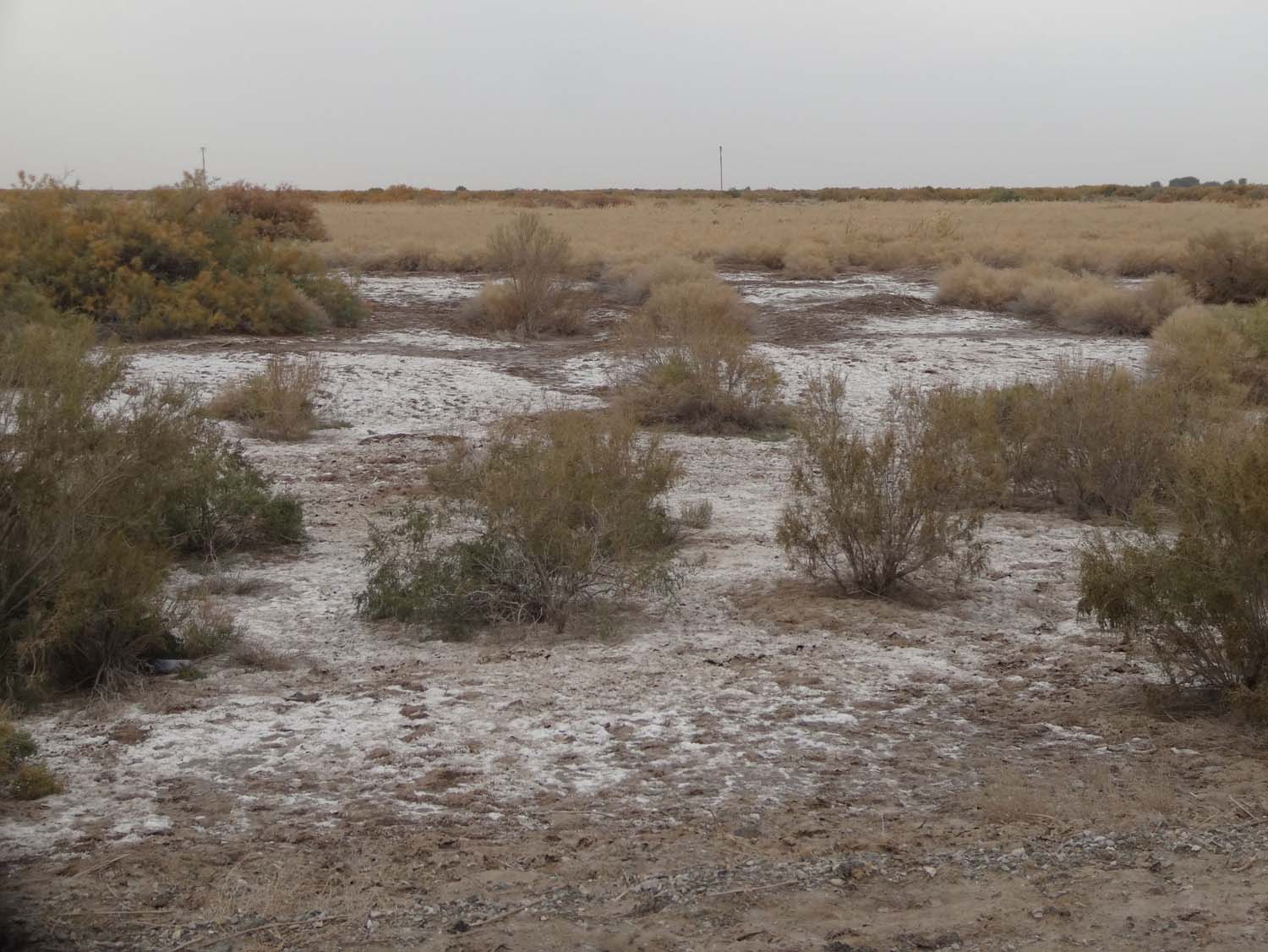
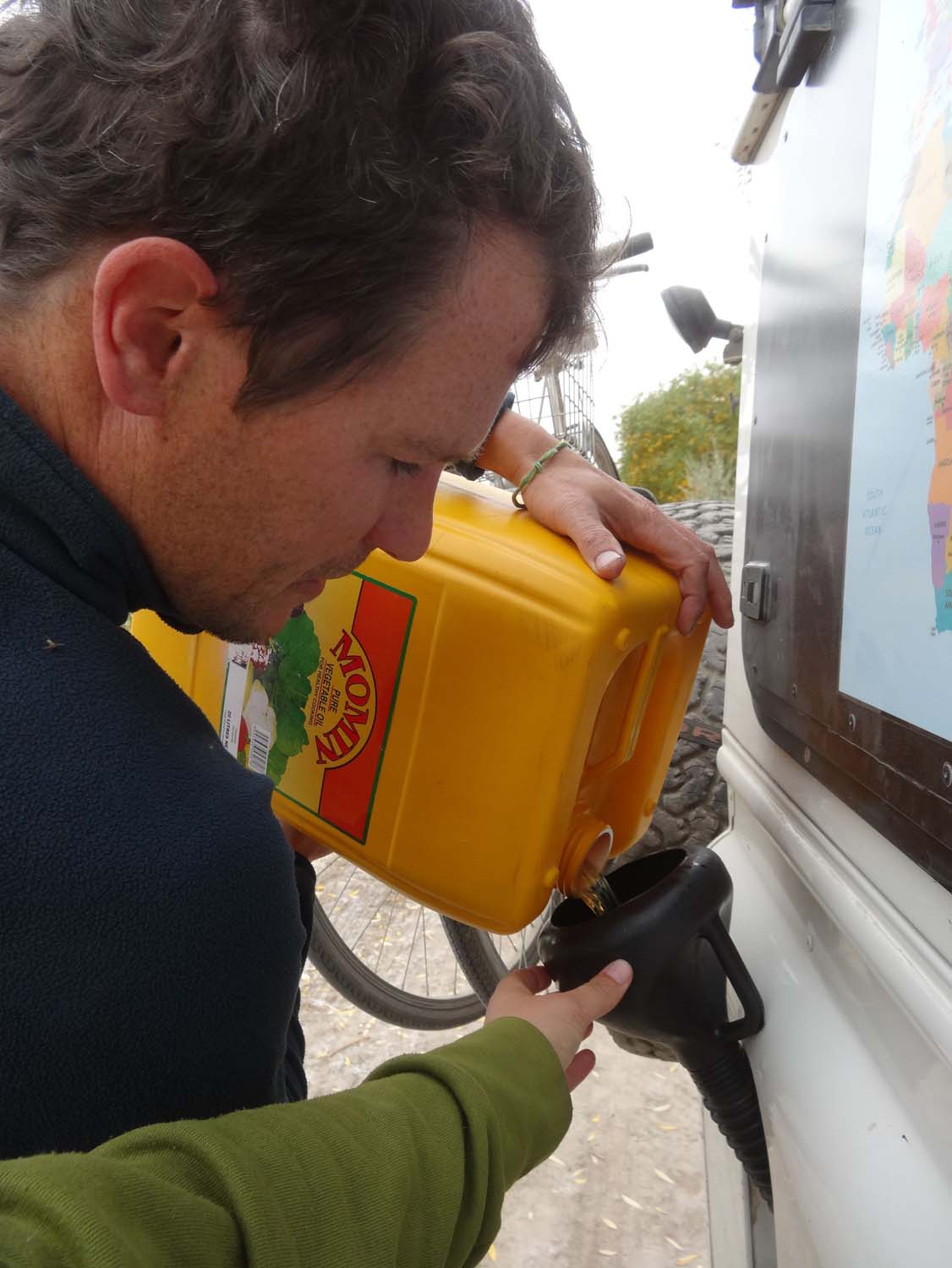
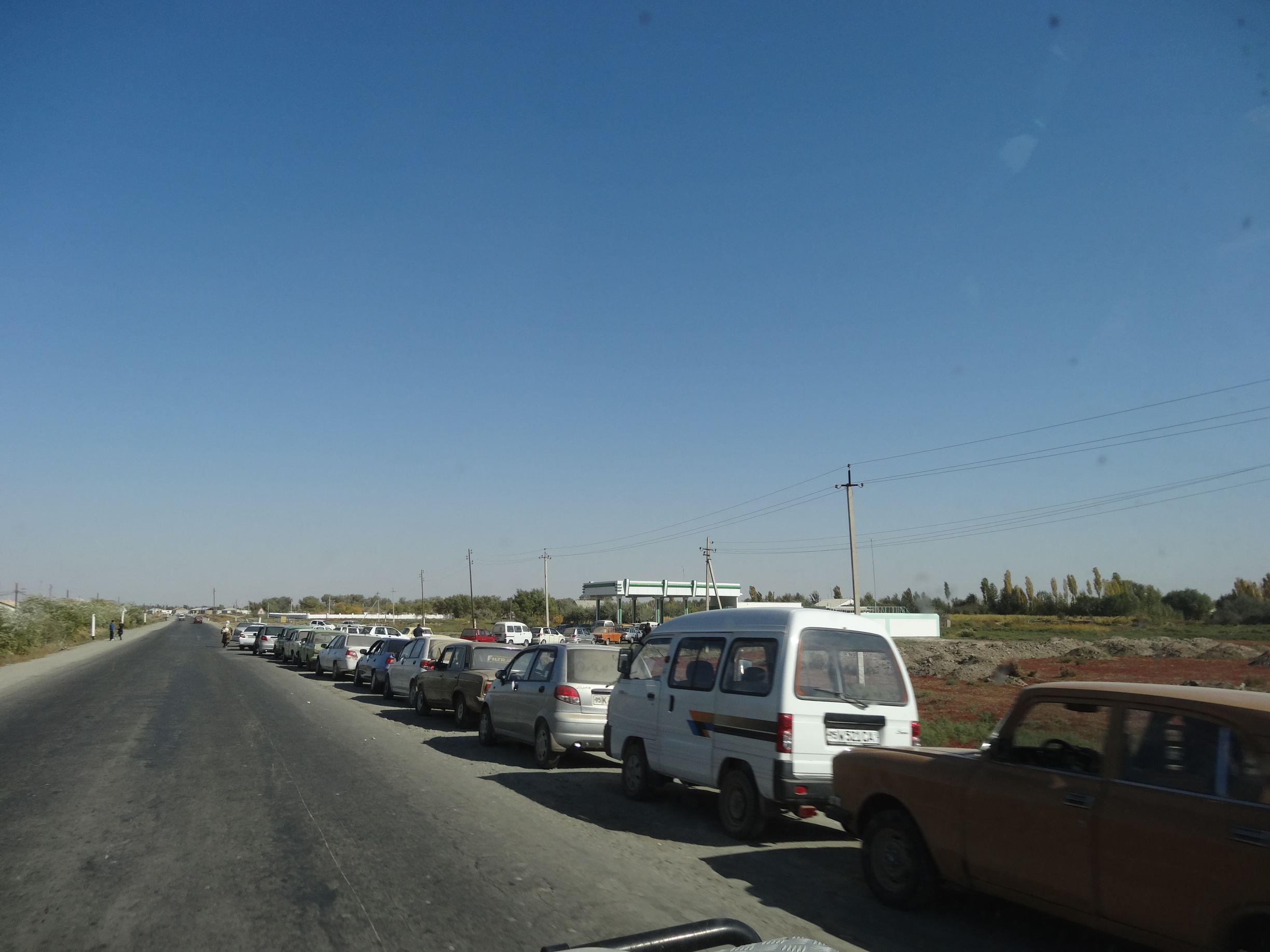
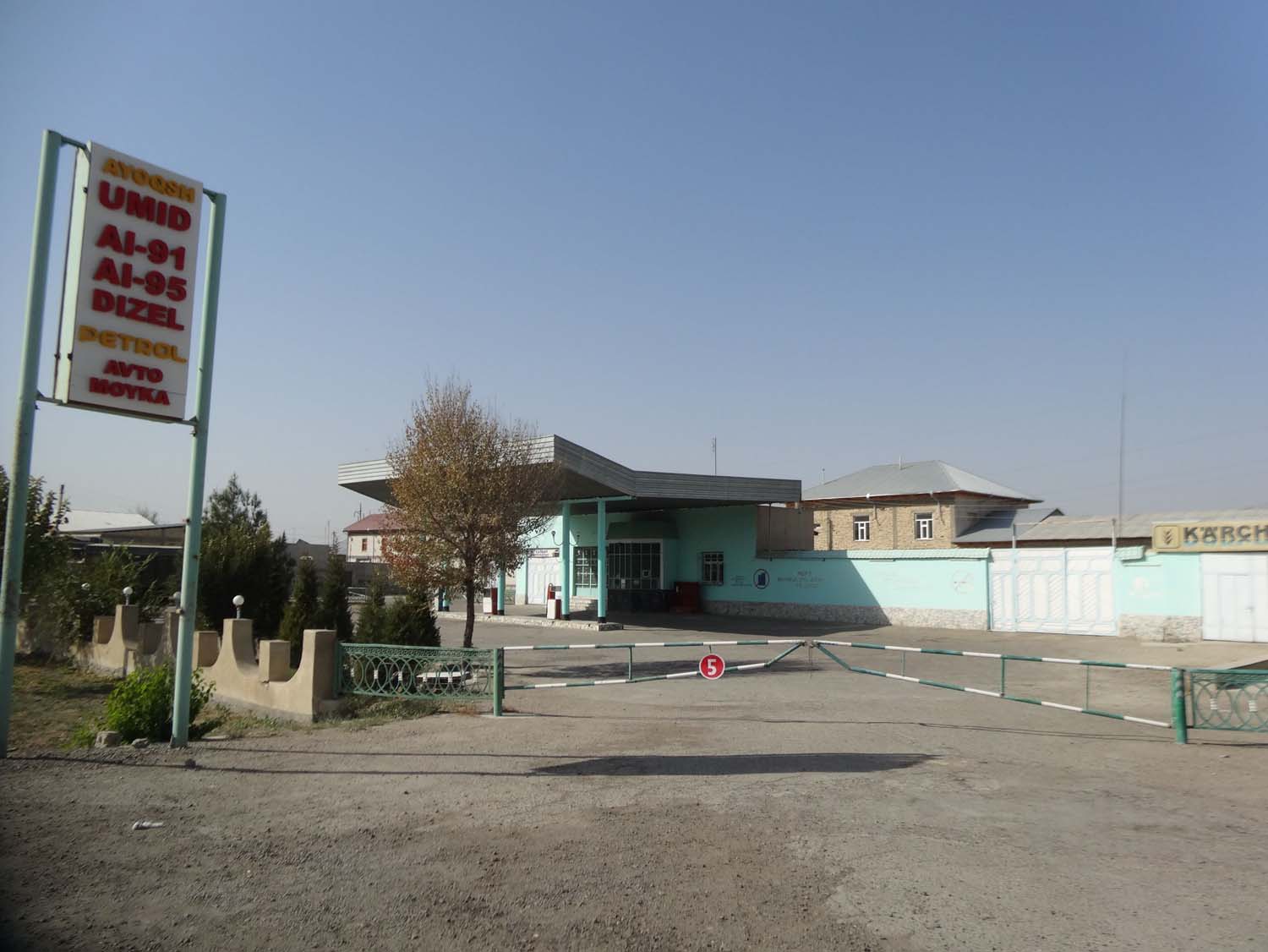
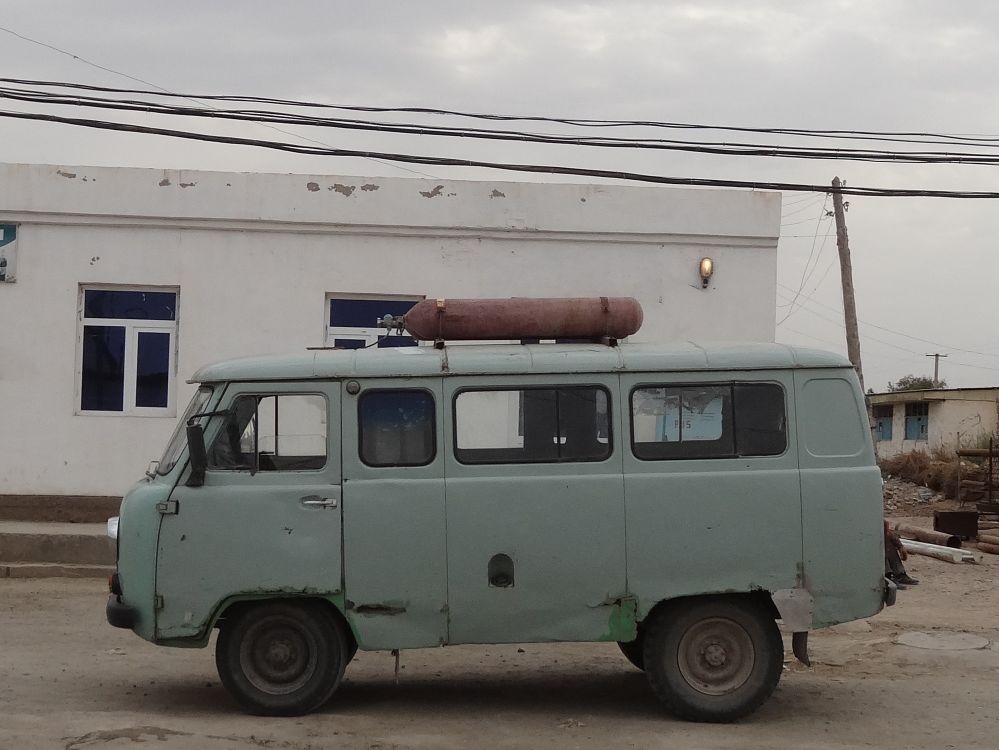
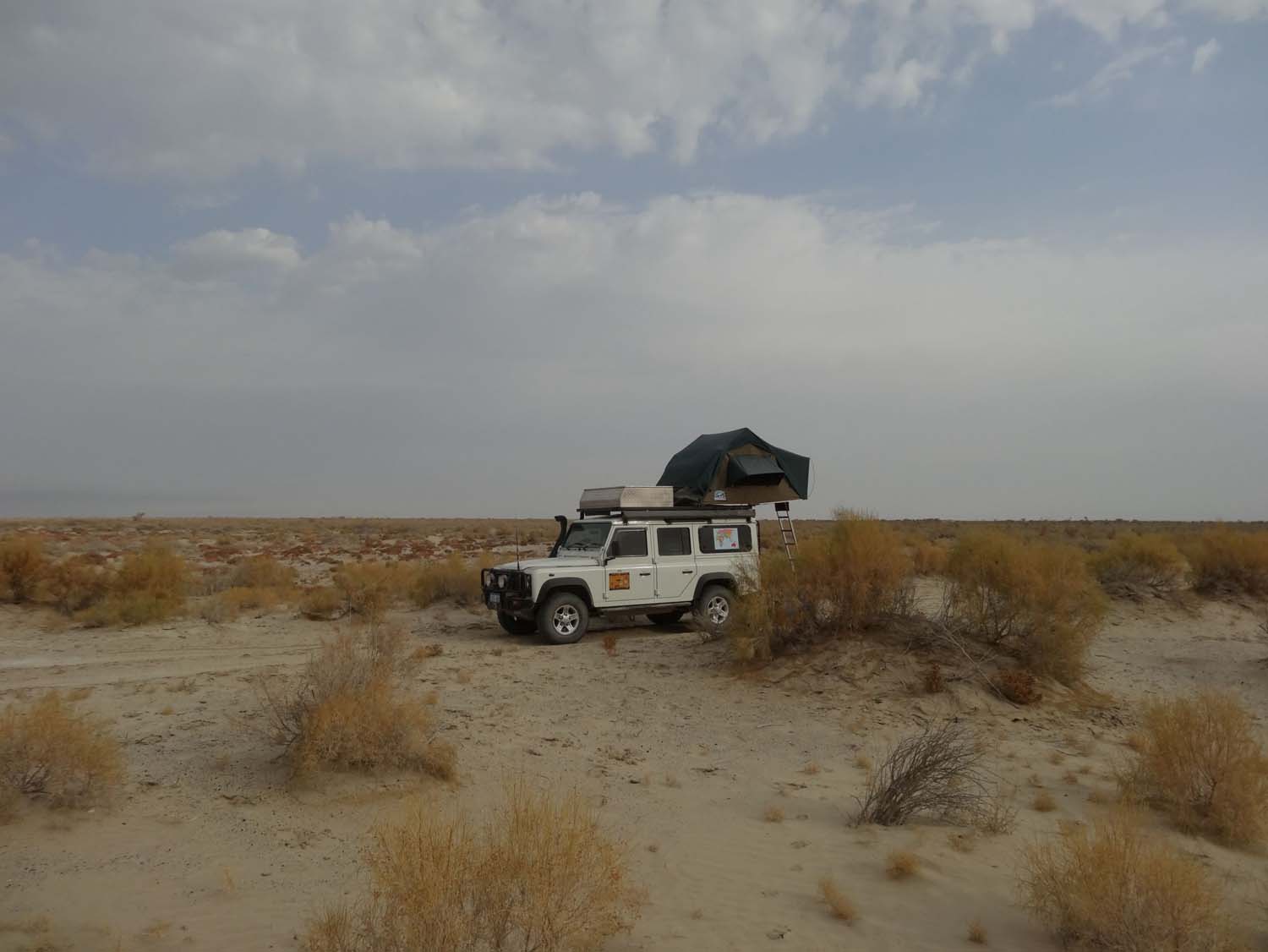
great post! you didn’t say how much you paid for the diesel.
thanks!! per liter it was only just over a dollar, which was 3 times the going rate. we’ve heard people pay up to $3 for a liter though so we were pretty stoked with this price 🙂 stinging now is the Turkish diesel… (over $2 a liter!)
Fascinating! Learning a lot from you guys!
We are learning so much too!! and loving it.
Compelling story you guys; it seems so absurd that the ‘simple’ action of diverting a river could lead to the death of an inland sea. Not to mention the kick on effect this has had on the area’s micro-climate.
(loving your travel stories 🙂 )
hi Mike, yeah, pretty sad isn’t it? all the more so as it is so recognisable and so easy to prevent with just a little less greed… thanks for your comment and there’s a few more stories to come so you can keep yourself entertained by the bus stop or during a boring meeting 🙂 big hug also for Tanya! Jx
Jawel, waar zal al onze kennis en groeiende economische behoefte nog toe lei(ij)den?! Alle goeds voor jullie beiden! Dikke groeten uit, nu, zonnig Oost Souburg. X
weer een toffe woordspeling!
naar nog veel meer van dit soort ellende ben ik bang… hoop dat de zon nog steeds schijnt in Souburg! en tot over een paar weken! Jx
Hey Jude,
Loved reading this post. Can feel the emotion in your words. It’s so sad and such a telling story. Thanks for sharing it.
You’re definitely getting closer! So excited that I will get to see you both in Europe. Do you have any plans of when you will be here or of the skiing/hiking/dog sledding adventure trip? I’m just in the process of organising a trip back to Aus. I won a grant with some colleagues and they want me to go back in late Jan/early Feb!! I really want to come on the trip though so wondering how I can manage to do both. I’m sure there’s a way. But just wanted to check in with you to see if you had any vague ideas of timing and I’ll see what magic I can work.
Take care and see you soon-ish!
Love Sal xo
hi chica! there are some other people with restrictions on dates too but not many. I’ll send you an email and I am sure we can sort it out so you can do both! Can’t have you not being there just because you’ve got a jolly to Oz 🙂 are you getting the banners out for when we arrive?! Jx